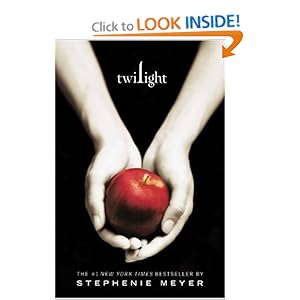A while ago I commented on a blog post questioning if the
publishing industry was skewed towards privileged people from New York.
Although an interesting topic, some of the comments stuck with me more: comments
about the small salary of assistants*, the impossibility of affording an
apartment without vermin or five roommates, the difficulty in eating
well-balanced nutritional meals, etc. These comments appalled me because I have
not shared that experience.
As a poorly paid editorial assistant, do I have everything
I want? No. Do I have everything I need? Absolutely. It’s all about being smart
with your money and knowing how to save and when to compromise. So, for those
debating whether they can afford to enter the industry without living at home or commuting from a dangerous neighborhood
where you can’t leave your cockroach-filled apartment after sunset, here is how
I handle living on a tight budget. It’s so doable.
Apartment: Rent is horribly high in New York, but despite this
I knew I wanted to live in Manhattan. So I picked an ‘affordable’ neighborhood
and ended up still living five blocks further north than I would have liked. I
had three other roommates whom were found on Craiglist. It’s not ideal, but
that’s what you have to do. And I had a sunny and clean apartment, my own
bedroom and a large kitchen all within walking distance from where I wanted to
be.
Food: I like to cook. This sets me apart from many New
Yorkers but also saves me a lot of money. It’s easy to make delicious and
nutritional meals. Unlike one of the commenters on the blog post, I’ve never
not been able to afford milk (or similar nutritional essentials). On a budget,
you just can’t afford go out to eat all that often. I go out for dinner on an average of three times a month. In
New York there are so many
interesting places that are tempting to try—but you can’t. You need the
willpower to say ‘no’. For lunches, I often take leftovers from the previous
dinner and only buy my lunch twice a month. And snacks, mostly in the form of
ice cream and cupcakes, are a bit more often but they add up quickly, too, so
I’m trying to cut back.
Going Out: This is one area where I’d love to do more of
it. But an evening on the town—or even a afternoon matinee—quickly adds up. I
average less than one performance (Broadway, comedy, dance) and less than one
evening of drinking and dancing a month. Museums are slightly more often
because many have only a ‘recommended’ admission fee. A quarter works just fine
at the Met! And the possibility of discounts is always something to keep in
mind—I will rarely pay full price for any activity, because if you save enough
one night you might even be able to go out for another the following week!
‘Things’: This is where it’s easiest to get into trouble
on a budget and where I’ve had to be most mindful. You have to learn quickly
that you cannot buy everything you want—clothes have been especially difficult
for me because it New York you want to stay on top of the fashion trends. But I
have what I need—presentable work clothes—and the rest will slowly come later.
Savings: You can save as an assistant. A small amount goes
from the paycheck directly to my 401k. I set it up before I even got my first
paycheck, so I don’t even ‘miss’ that money! And, if you figure out where
you’re okay cutting corners in the areas above (Eg. only going out to brunch
once a month, waiting for that dress to be on sale) there is money left over to save for bigger purchases or a vacation. I
promise, it’s possible.
So there you have my two cents on living on an editorial
assistant’s pay. It is a bit of a challenge, but with the willingness to
compromise in some areas and the awareness of sticking to a budget it’s
entirely possible to do well for yourself, even in Manhattan. Would I like to
be making more money? Of course. Would I like a different job? Not at all. And
that’s what matters in the end.
* It is true that publishing pays notoriously low. To get
some idea of publishing salaries, mediobistro recently shared a
Glassdoor summary and Penguin often lists beginning salaries in the job
descriptions.
























